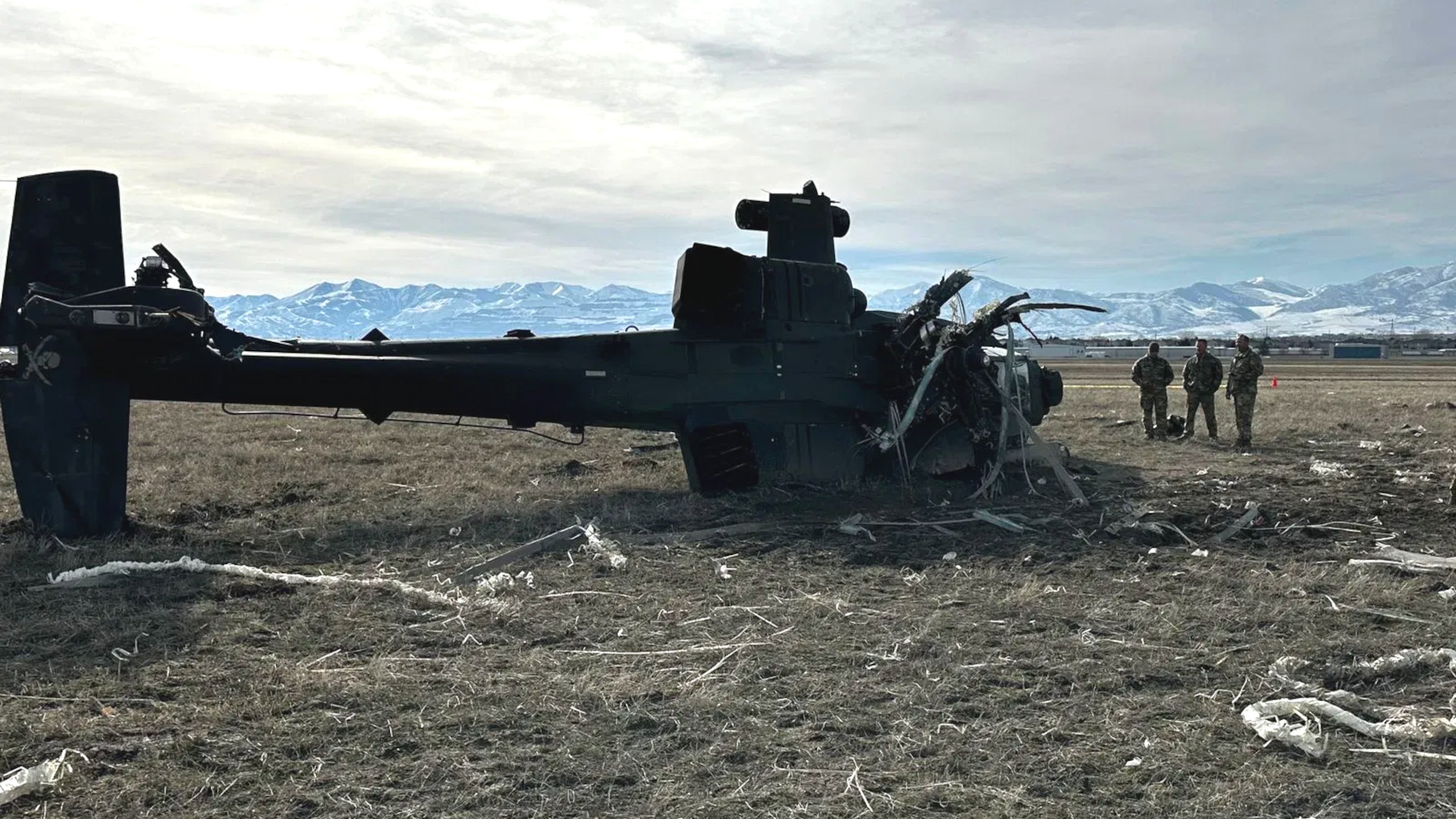A U.S. Army AH-64 Apache attack helicopter crashed at Fort Carson in Colorado late yesterday. This was the second active duty Army AH-64 crash in three days and follows a pair of crashes involving Army National Guard Apaches last month. The National Guard’s Apaches were subsequently grounded.
The most recent Army AH-64 mishap involved an unspecified Apache variant assigned to the 4th Combat Aviation Brigade, part of the 4th Infantry Division, at Fort Carson. The crash occurred at approximately 6:30 PM local time in the course of a routine training flight, according to KDVR, a local Fox affiliate. The helicopter’s co-pilot/gunner were taken to the base’s Evans Army Community Hospital where they were treated for minor injuries and subsequently released.
An investigation is underway. In the meantime, “the command has temporarily grounded all aviation assets on Fort Carson until further notice,” officials at Fort Carson said in a statement to Army Times.
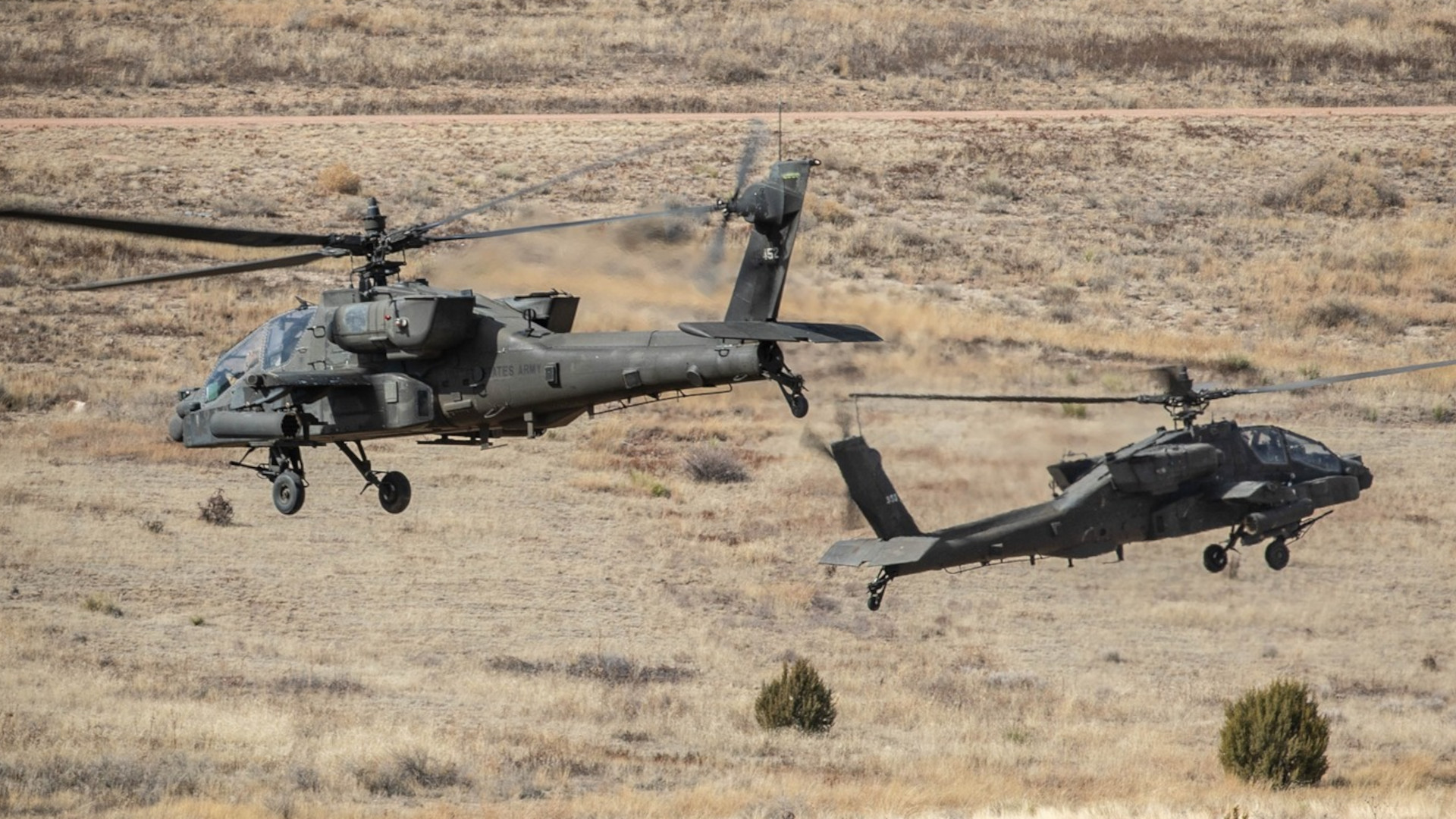
Another Apache, an AH-64E variant from the 16th Combat Aviation Brigade, suffered a mishap at Joint Base Lewis-McChord in Washington State at around 9:30 PM local time on Monday. That incident also occurred during a routine training mission and is being investigated. The helicopter’s pilot and co-pilot/gunner were still at Madigan Army Medical Center in “stable condition” as of yesterday, according to Army Times.
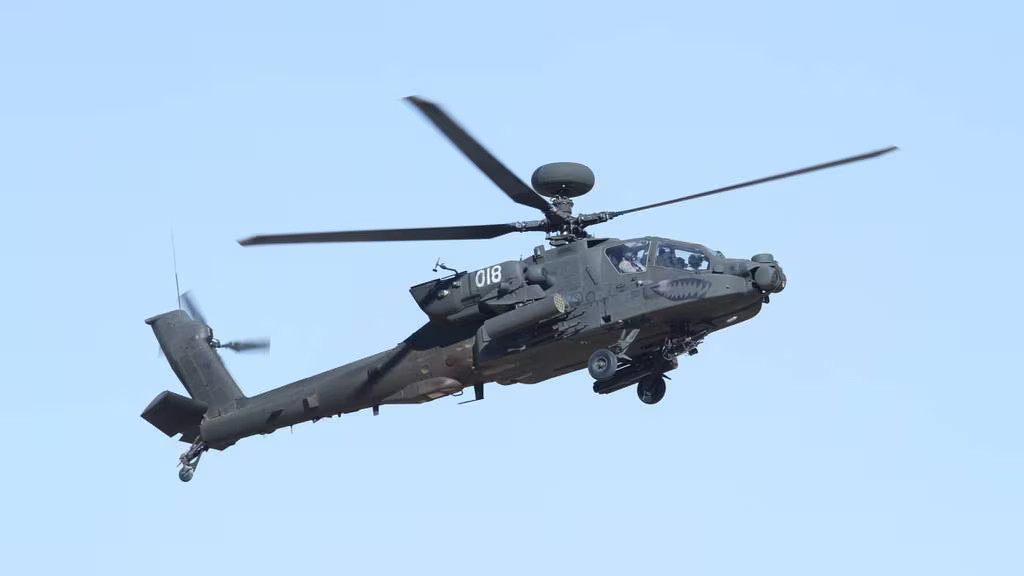
This all comes after two Army National Guard AH-64D Apaches crashed in separate incidents in February. Both of those mishaps, which also occurred during training flights, remain under investigation.
The first of these incidents involved an AH-64D from Utah’s 1st Battalion, 211th Aviation Regiment, which came down at South Valley Regional Airport in West Jordan on February 13. One of the individuals onboard that helicopter at the time was treated and subsequently released. The other individual, a pilot from the U.S. Air Force Reserve’s 419th Fighter Wing at Utah’s Hill Air Force Base, was said to be hospitalized and in stable condition immediately after the crash, according to KUTV, a local CBS affiliate. It is unclear why an Air Force pilot was flying in the Apache.
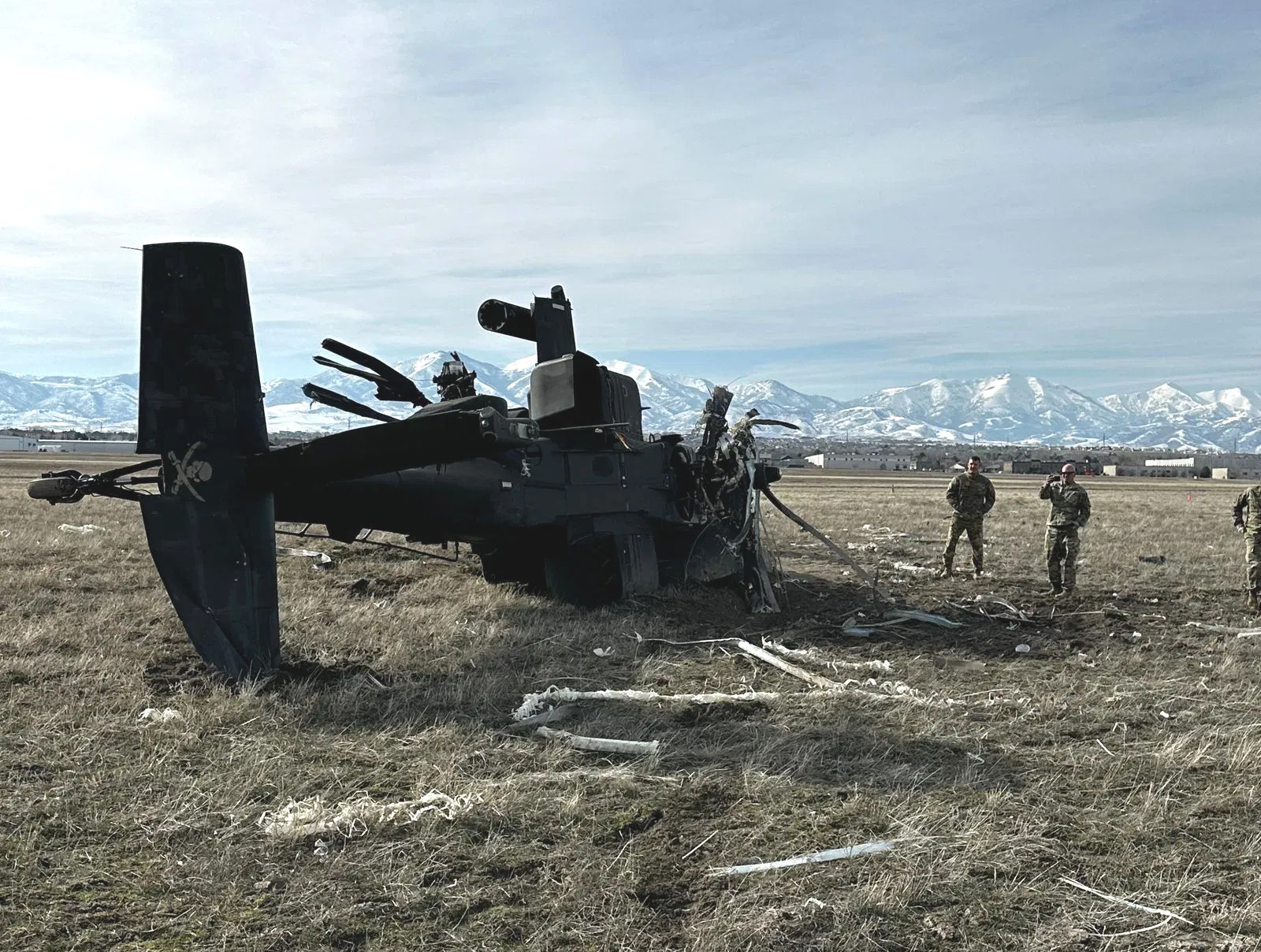
The second Army National Guard AH-64D mishap involved an Apache from the Mississippi Army National Guard, which came down near the city of Booneville in the northeastern end of the state on February 23. Chief Warrant Officer 4 Bryan Andrew from Company A, 1st Battalion, 149th Aviation Regiment, and Chief Warrant Officer Derek Joshua Abbott from Company D, 2nd Battalion, 151st Aviation Regiment, died in that crash.
On February 27, the Army National Guard announced it was grounding all of its Apaches.
“We are a combat force with helicopters training or on mission worldwide every day,” U.S. Army National Guard director Lt. Gen. Jon Jensen said in a statement at that time according to The Defense Post. “Safety is always at the top of our minds. We will stand down to ensure all our crews are prepared as well as possible for whatever they’re asked to do.”
At the time of writing, no such grounding appears to be in effect for AH-64s assigned to active duty units. As of March 2023, the stated Army Acquisition Objective (AAO) for Apache was 812 helicopters, according to Breaking Defense. As of 2020, there were more than 700 Apaches, in total, assigned to both active duty units and elements of the Army National Guard. AH-64 variants have been in Army service for four decades now, with the first AH-64As being delivered in 1984.
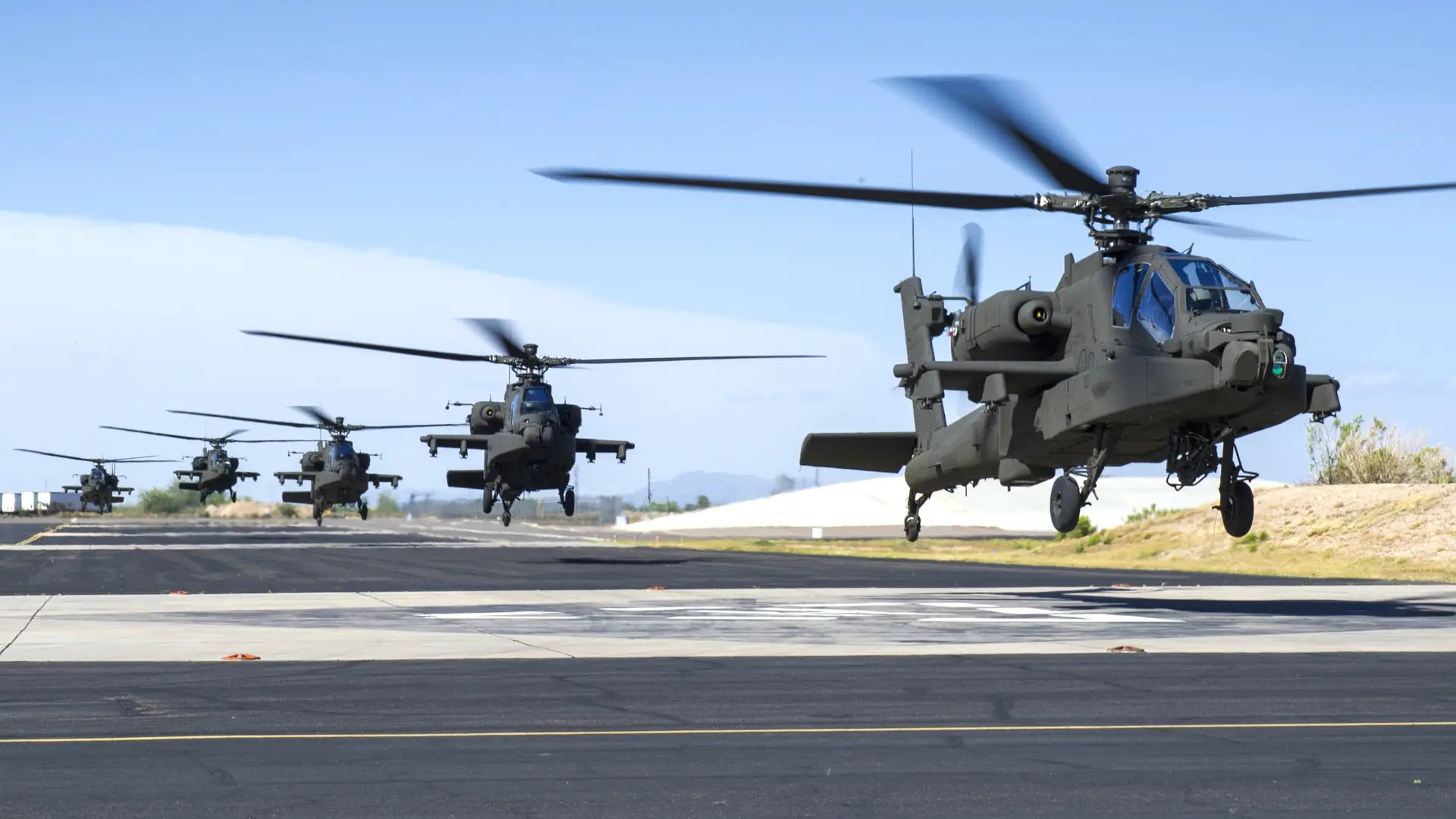
Last year, the Army disclosed a spike in failures of electrical power generators on AH-64s, which the service said could cause “potentially hazardous” smoke buildup in the cockpit, Breaking Defense reported in September 2023. The service said at that time that “a long-term solution is under investigation” and that “Engineering effort will commence once the program is funded.” A series of “interim actions” had already been taken at the time, including modifications to generators so that would shut down automatically after experiencing a fault.
There are no indications one way or the other that any of the four AH-64 crashes in the past two months have anything to do with generator issues. It also remains unknown if the root causes of any of these incidents are related.
The Army also announced in February that it was canceling a program to develop and field a new armed scout helicopter, called the Future Attack Reconnaissance Aircraft (FARA), which had been set to supplant around half its AH-64s. The service is now looking to accelerate a re-engining effort for its Apaches and is already in the process of fielding an upgraded configuration of the latest AH-64E. The Apache’s manufacturer Boeing has also proposed more dramatic upgrade packages to the Army and other AH-64 operators in the past.

Whether or not this recent string of Apache crashes will have any additional impacts on the Army’s broader AH-64 plans remains to be seen, but the cluster of recent crashes are bound to put extreme focus on the Apache community.
Contact the author: joe@twz.com
